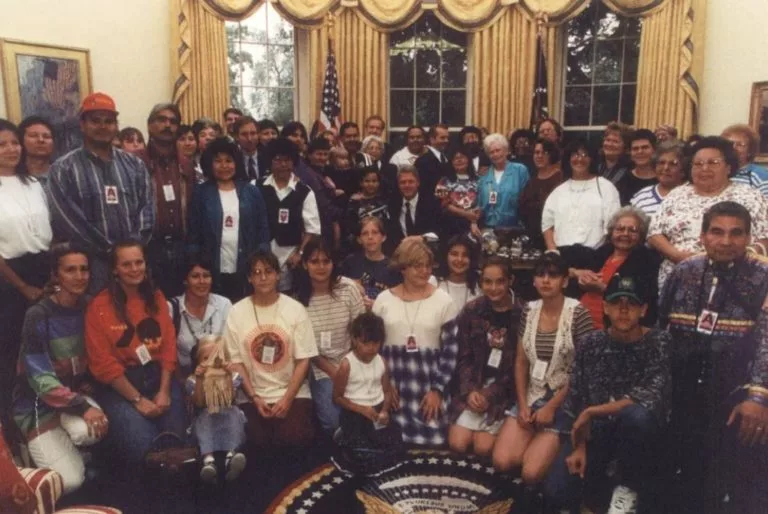
The Pokagon Band of Potawatomi is marking 30 years of official sovereignty.
The tribe held a celebration on September 21, three decades after President Bill Clinton signed into law an act of Congress recognizing the tribe’s sovereignty.
Tribal Chair Matt Wesaw tells us the tribe’s status was actually first confirmed in the U.S. Constitution, but later treaties reduced the tribe’s land. A 1934 law restored some of it, and then full sovereignty was reaffirmed in 1994. Wesaw says that means the tribe has its own government and services.
“We essentially have every basic kind of department that any other government has,” Wesaw said. “We have our own police department, our own tribal court. We’ve got social services. We’ve got a treasury. We’ve got housing. We’ve got our own clinic. We provide the same services that any other government would provide for their citizens.”
Wesaw says tribal leaders drafted the Pokagon constitution shortly after the 1994 law was signed, and it focuses on healthcare, education, and housing.
Wessaw tells us a large contingent of tribal members headed to Washington, D.C. back in 1994 when President Clinton signed the bill. That lead to some iconic photos of a crowded Oval Office.
“The president looked out through the window and said, ‘Who are all those people out there?’ Our chairman at the time, Joe Winchester, said, ‘Well, that’s our Pokagon citizens who wanted to come here and celebrate with us.’ And the president said, ‘Well, let them come in.’”
Wesaw says today, the Pokagon tribe provides services to its 6,200 citizens. The Pokagons have also grown into a major economic force in Southwest Michigan with land in Berrien, Cass, Van Buren, and Allegan counties and representing the region’s second largest employer.
Wesaw says moving forward, his goal is to revitalize the Pokagon language by teaching more citizens to be fluent and to provide more housing.






